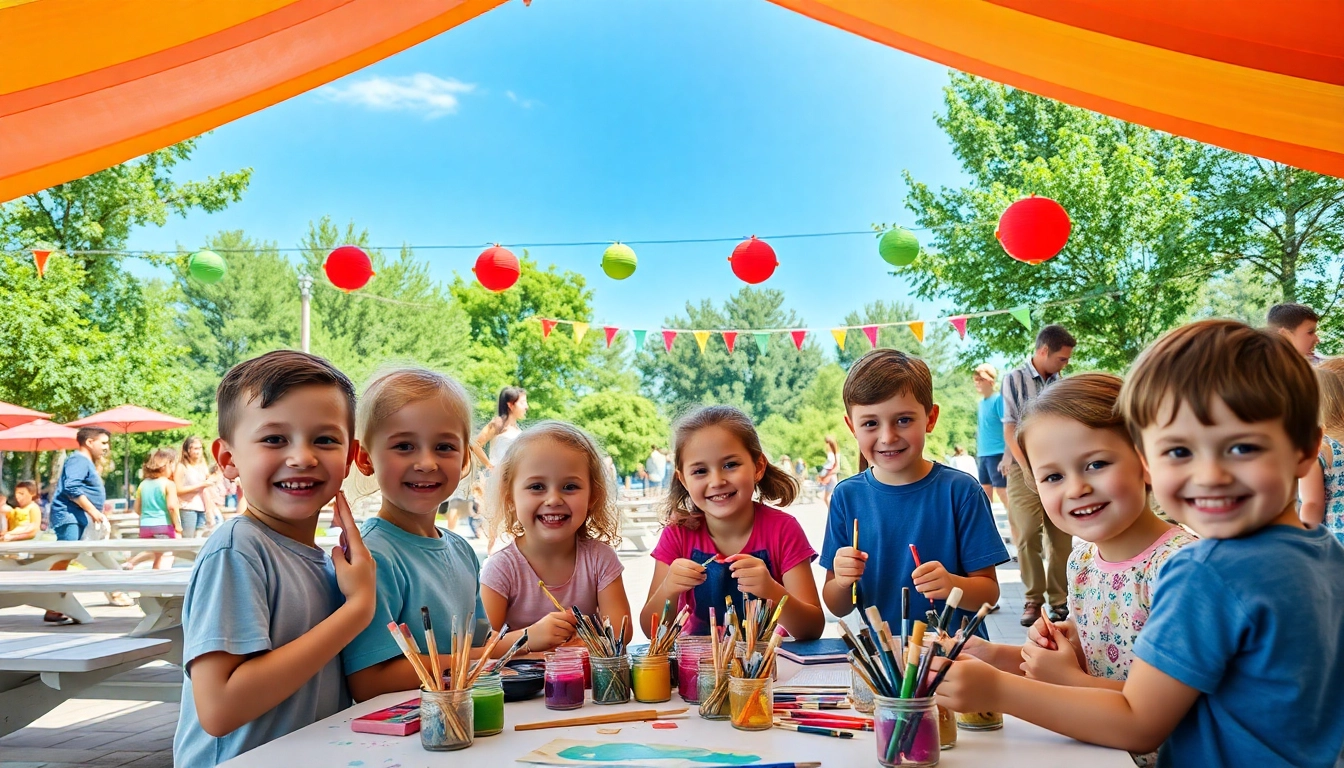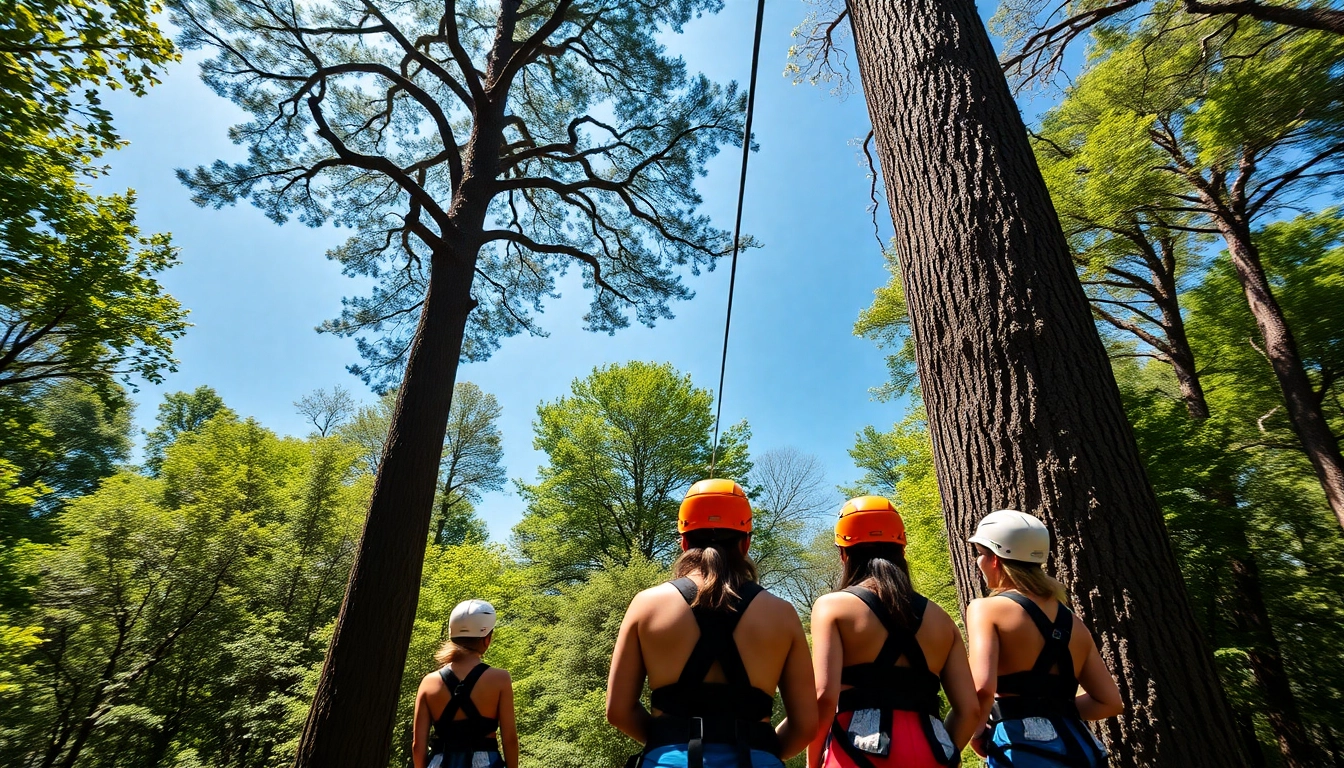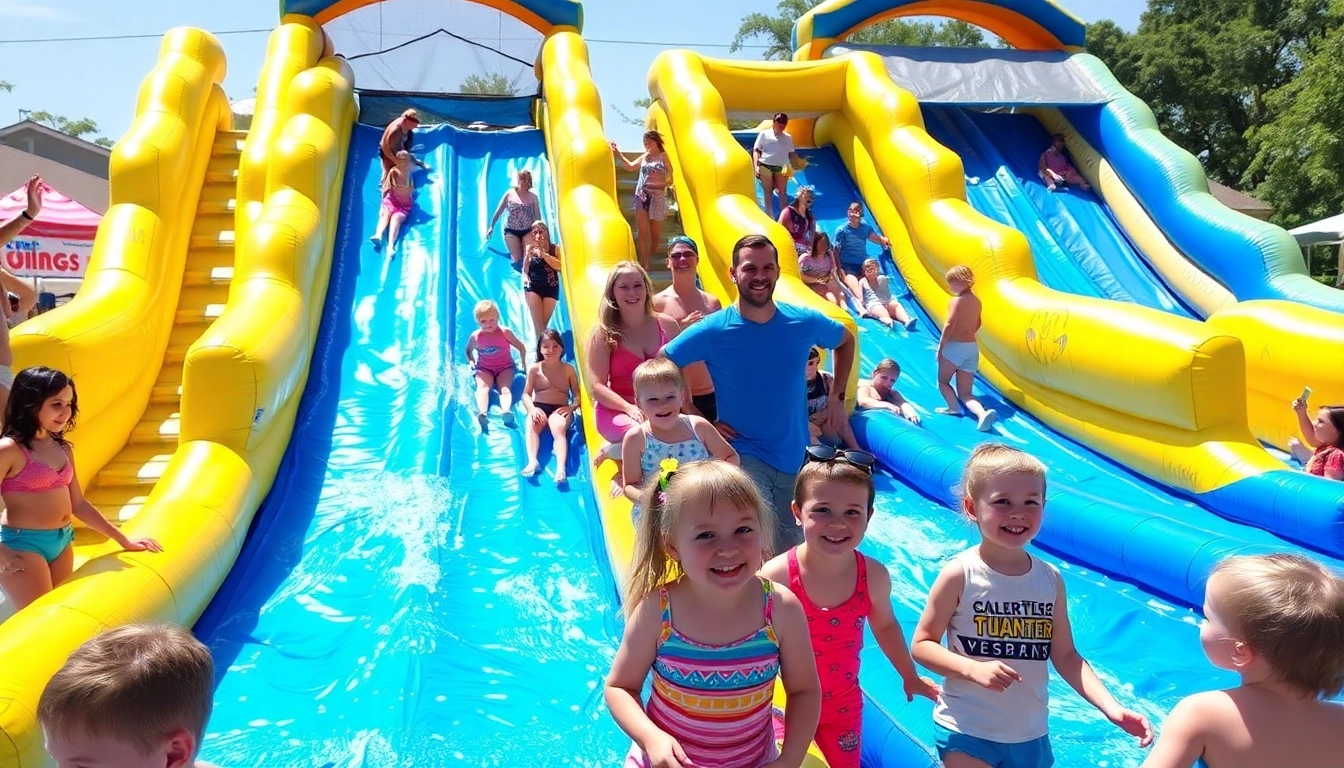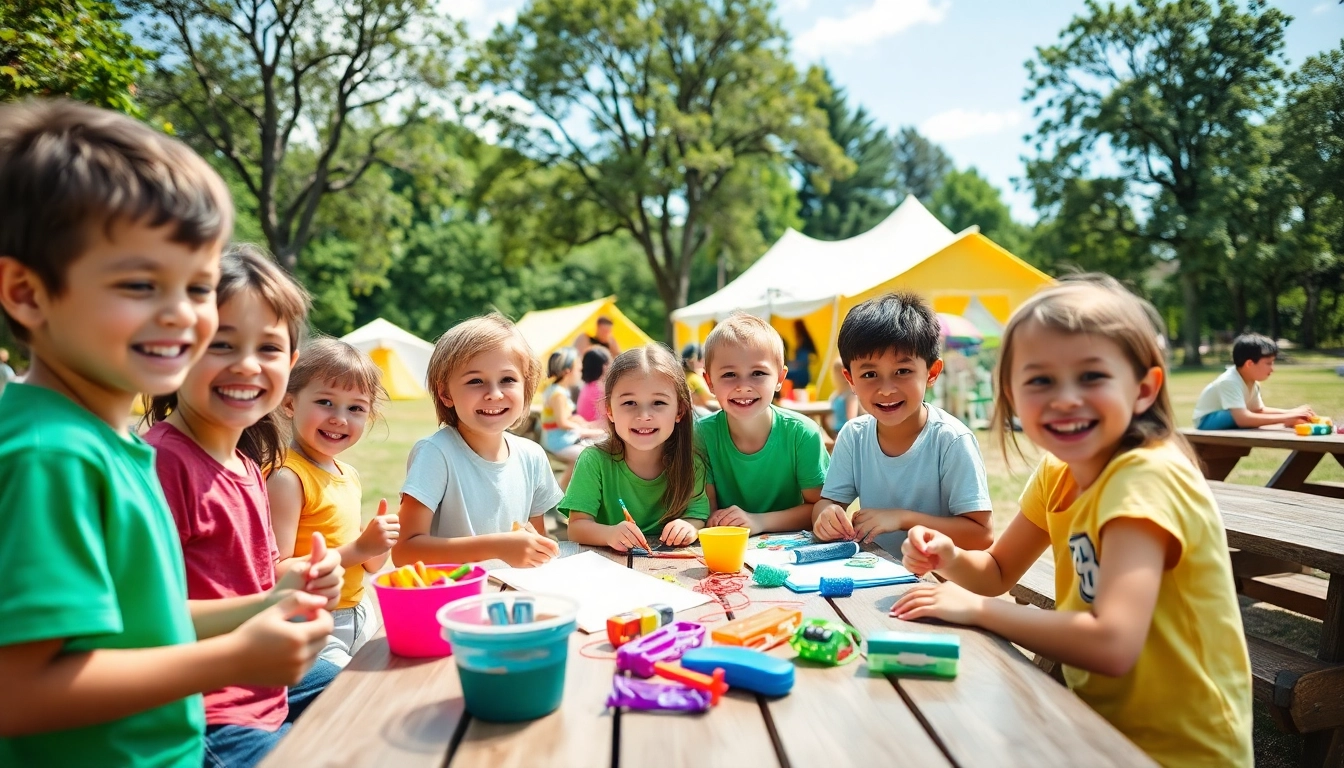Understanding Holiday Camps: An Overview
What Are Holiday Camps?
Holiday camps are specialized types of accommodations designed to provide extensive recreational activities and entertainment for families, particularly children, during school breaks. They combine elements of traditional holiday stays with structured activities, ensuring that children not only enjoy their time away from home but also engage in fun learning opportunities. These camps can vary considerably in focus, from sports and arts to education and even adventure, catering to diverse interests and fostering personal development.
One common characteristic of most holiday camps is that they encourage children to stay within the camp’s boundary, which limits the need for constant parental supervision and creates a sense of community among attendees. A great resource for exploring different holiday camps can be found through providers like Wildfire Events, which specialize in tailored experiences for children during holiday periods.
History and Evolution of Holiday Camps
The concept of holiday camps dates back to the early 20th century, particularly popularized in the United Kingdom. Initially, these camps aimed to provide working-class families and children with affordable vacation options that included both housing and organized activities. The first modern holiday camp, Butlin’s, was established in 1936 and set the standard for subsequent camps in terms of amenities and entertainment.
Over the decades, holiday camps have evolved significantly, incorporating more diverse activities, greater personalization, and marketing strategies. The modern iteration may now also include themes, specialized programs, and technology-enhanced experiences that cater specifically to children’s interests. For instance, camps now often focus on STEM education, outdoor survival skills, or even digital arts, capitalizing on current trends and technologies to engage young minds.
Popular Types of Holiday Camps
Holiday camps come in many varieties, each designed to cater to different interests and age groups. Some notable types include:
- Sports Camps: Focused on athletics, these camps offer training and skill development in various sports such as soccer, basketball, tennis, or swimming.
- Adventure Camps: Aimed at thrill-seekers, these camps often include outdoor activities like rock climbing, hiking, zip-lining, and canoeing, fostering a love for nature and adventure.
- Arts and Crafts Camps: These camps focus on enhancing children’s creativity through painting, pottery, music, dance, and other art forms.
- Educational Camps: Tailored for learning, these camps provide enrichment in subjects such as science, technology, engineering, and mathematics (STEM), encouraging children to explore new interests.
- Cultural Camps: These are centered on cultural immersion, offering experiences relating to language, music, cuisine, and traditions from different cultures and communities.
Benefits of Holiday Camps for Children
Social Skills and Friendships
One of the most significant benefits of attending a holiday camp is the opportunity for children to make new friends and develop essential social skills. Being surrounded by peers allows them to navigate social dynamics, learn conflict resolution, and practice teamwork in a supportive environment. These friendships often extend beyond camp sessions, creating lasting bonds and enriching a child’s social life.
Physical Activity and Health Benefits
Holiday camps typically offer numerous activities that encourage physical exertion, ranging from sports to nature hikes. Engaging in these activities helps combat childhood obesity, promotes physical fitness, and fosters a lifelong love of movement. Moreover, physical activity is proven to enhance mood and cognitive function, contributing to better overall health.
Creative Expression and Learning Opportunities
Whether through arts and crafts, drama, or music programs, holiday camps provide children with various ways to express their creativity. This creative outlet can be crucial in helping children discover new interests or refine existing talents. Plus, many camps integrate educational elements seamlessly, allowing children to learn in a fun and engaging environment without the pressure often associated with traditional schooling.
Choosing the Right Holiday Camp
Key Factors to Consider
When selecting a holiday camp for your child, consider several critical factors:
- Age Appropriateness: Ensure that the camp offers activities suitable for your child’s age and development level.
- Safety Standards: Investigate the camp’s safety protocols, including staff qualifications, training, and the camper-to-staff ratio.
- Location: Nearby camps may be more convenient, but some families choose destination camps for a unique experience.
- Focus Areas: Determine if the camp’s focus aligns with your child’s interests, whether it’s sports, arts, or academic enrichment.
- Cost: Evaluate your budget and consider any additional expenses, such as supplies or transportation.
Comparing Different Types of Camps
Before deciding, compare various camps based on the factors listed above. This examination can shed light on what each camp emphasizes, its environment, and its reputation among parents and past attendees. Make use of reviews, testimonials, or chat with camp alumni to gather insights that will inform your decision.
Expert Tips for Selecting a Camp
Experts recommend visiting potential camps, if possible, to observe the environment and engage with staff. This firsthand experience can significantly aid in assessing the camp’s atmosphere and how welcoming it is towards new campers. Additionally, be sure to read reviews from other parents and consider their feedback as part of your decision-making process.
Planning Your Child’s Holiday Camp Experience
Before Camp: Preparation Checklist
Getting ready for camp is essential for ensuring that your child has a smooth transition and maximizes their enjoyment:
- Communication: Talk with your child before camp, discussing what to expect, the activities available, and comforting any anxiety they may have.
- Packing Essentials: Prepare a packing list and ensure your child brings necessary items such as clothing, toiletries, and any personal items they may need.
- Permission Slips and Forms: Complete all required paperwork ahead of time to avoid last-minute scrambles.
- Health Precautions: Ensure that any medical conditions are addressed by informing camp staff, if needed.
During Camp: What to Expect
Once camp begins, your child may go through an adjustment period. Encourage them to engage with others, participate in activities, and communicate any challenges. Many camps have structured schedules, providing campers with a routine that helps them feel settled. Additionally, it’s normal for children to have varied experiences; some will thrive and make friends quickly, while others may take time to acclimate.
After Camp: Keeping the Spirit Alive
Following the conclusion of camp, it’s essential to talk to your child about their experience. Ask them about their favorite activities, friends they made, and what they learned. This reflection can help solidify positive memories and highlight the skills and friendships gained. Parents can also facilitate reunions with camp friends to maintain those connections beyond the camp experience, fostering lasting relationships.
Success Stories from Holiday Camp Alumni
Transformative Experiences
Success stories abound from individuals who credit their holiday camp experiences as transformative. Many find that the new skills and confidence they acquired at camp led to personal growth and paved the way for future endeavors. From overcoming fears to discovering hidden talents, these stories exemplify how holiday camps can shape lives.
Life-Long Friendships
Numerous alumni have reported maintaining friendships formed at camp, which often span decades. These bonds frequently translate into a network of support throughout life’s different phases. With social media, reconnecting with camp friends has never been easier, fostering a sense of community that many cherish well into adulthood.
Impact on Personal Development
Participation in holiday camps often leaves a lasting impact on children’s development. Many alumni express how their camp experiences enhanced their self-esteem, leadership abilities, and social skills. Recalling their playful, yet educational camp environments often evokes nostalgia and gratitude, showcasing holiday camps as vital engines in personal growth and exploration.



